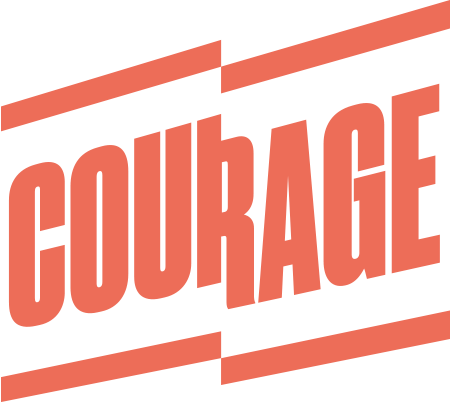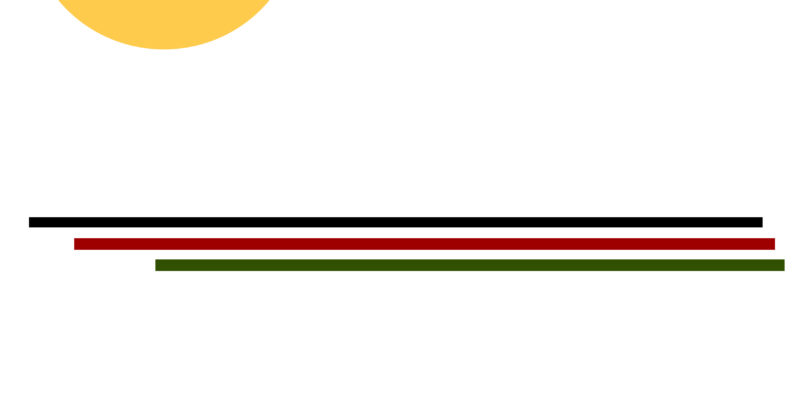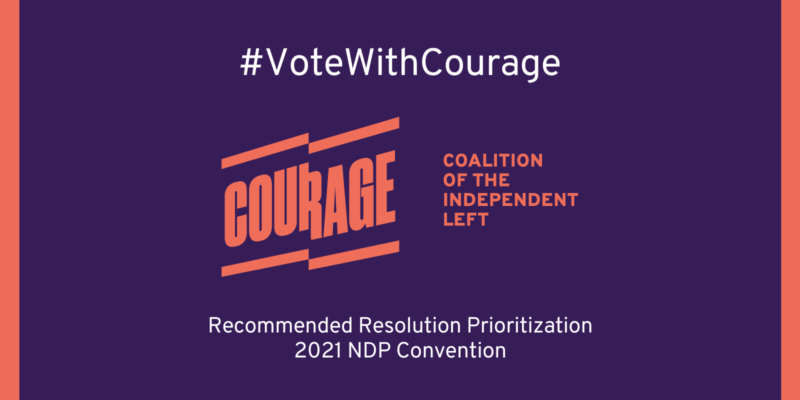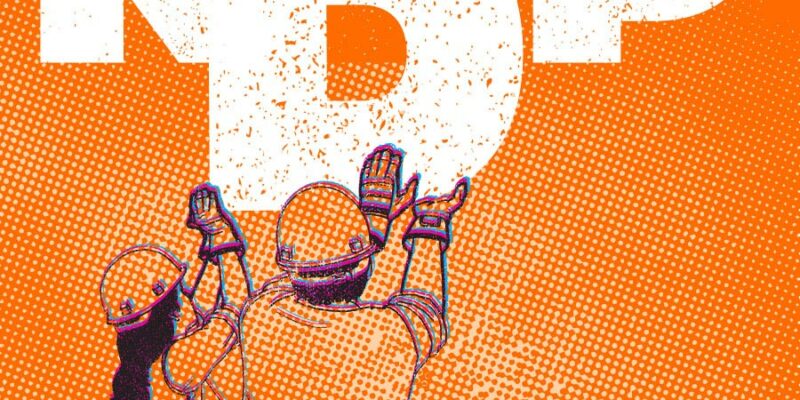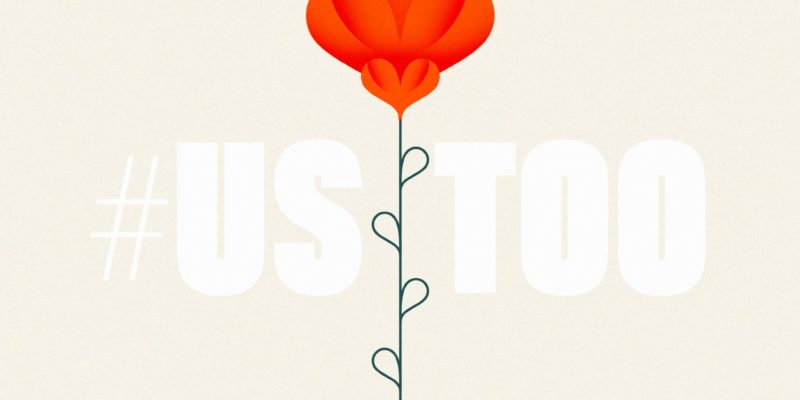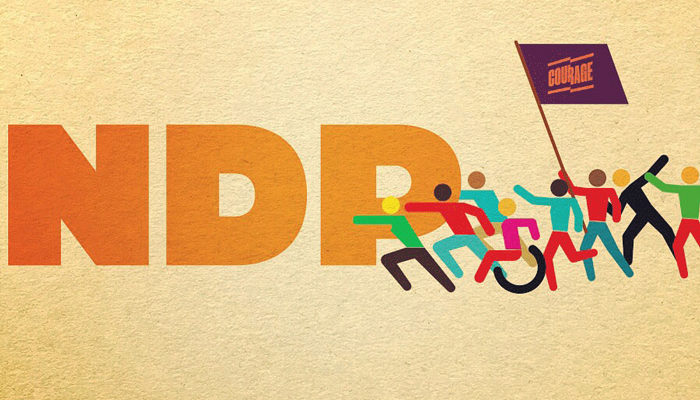Why we can’t have one without the other
The world’s five richest people (all of them men) now own as much wealth as the bottom half of the world’s people. That’s one car load of people that control as much wealth as half the world combined.
Here in Canada, our two wealthiest citizens control the same amount of wealth as the bottom 30%—that’s about eleven million people—combined.
The growing body of research on material inequality tells us this: the economic and material context that we live in shapes us—our motivations, our identities, our health, and thus our society, dramatically.
A summary of the points that follow:
- Material inequality shapes who we are in profound ways.
- Unequal distribution of wealth fosters, maintains, and reinforces cultural myths that legitimize oppression in our society, such as racism, misogyny, transphobia, homophobia, or ableism.
- Economic inequality concentrates power in the hands of the few. An increasingly powerful few are therefore increasingly able to define the political centre and to propagate their views, including particular kinds of nationalism and religiosity (or even bigoted anti-theism) that both distract from and maintain elite power.
- Canada is a major driver of global inequality, facilitating the extraction of material resources and labour from the Global South and participating in violent repression of Indigenous resistance.
- Canada’s immigration policies deny basic rights to migrant workers, which creates a permanent underclass.
- Indigenous land rights challenge growing inequality, but today Indigenous peoples live in deep poverty as the result of government policies. Meanwhile billions of dollars of natural resources are extracted from their lands.
- Gross inequality is a barrier to democracy, and to democratic solutions to existential threats like climate change.
- Policies that deepen inequality pave the way for right wing populism—even when they’re implemented by so-called ‘progressives’.
- Tinkering with the pace that inequality grows is not an acceptable solution: We need policy solutions that actually reverse economic inequality.
- To reverse inequality, the left must work to redistribute wealth, but also to democratize economic policy, leadership of businesses, and day to day management practices in the workplace.
The effects of inequality
Highly unequal societies produce more greed and status obsession. Ironically, however, unequal societies have the least social mobility: the economic ladder is harder to climb when the rungs are farther apart. The lives and lifestyles of the rich become increasingly inaccessible, as does the world of representative politics: low voter turnout is closely related to income inequality in democracies across the globe. When wealth is concentrated, so is power, and this results in democratic choices that are of increasingly little interest to the poor.
When wealth is concentrated, so is power, and this results in democratic choices that are of little interest to the poor.
A relationship has also been demonstrated between income inequality and the unequal distribution of basic political information in rich capitalist democracies. This increasingly uneven distribution of basic political information has been found to produce more self-identified centrists. It is the Left who suffers most from an unequal distribution of political information, for the wealthy rely less on the political information distributing mechanisms that are in decline in the more materially unequal societies: public education, unions, and social capital.
When the wealthy, and the corporations they own, control how ideas and news are shared, our political imaginations are constrained. This pulls the political centre ever-rightwards, and degrades our democracy.
The political spectrum can polarize rapidly when economic crisis is added to the mix. The rise of right wing populism is a symptom of deep inequality that has become economically and politically unstable. The maldistribution of political information fostered by a narrow range of accessible political options and opinions is exploited by the radical right, even as elites hang on to the old status quo centrism.
Years of corporate-driven politics have moved the centre to the right and set the stage for a mounting political crisis. In the USA, for example, polarization is happening around a centre that was already way out in right field. Racism, xenophobia, misogyny, and other forms of bigotry were decisive forces in the American election—forces now emboldened by that election’s result—but we must recognize that material inequality is the fertile soil in which they have grown.
The Intersections of Inequalities
Class, as an identity, should not take priority over other identities in anti-oppression struggles. Thanks to the work of pioneering Black feminists, the fact that identities intersect, amplify, and complicate one another is a well-established feature of our world; oppression is ultimately not reducible to one root-source. Nevertheless, class must be recognized as being inherently intersectional, such that our struggles always name and account for specific measures to combat specific inequalities. Class is not the property of whites; it is a social and material structure that exploits all who are alienated from the full fruits of their toils, remunerated or otherwise.
The class structure of our society provides the material foundation upon which our identities, and our perceptions of others, are formed.
All types of oppression, including class, may have an identity component which is not exhausted by relations to capital, but none are completely separable from material and economic reality. The class structure of our society, and its current calibration, provides the material foundation upon which our identities, and our perceptions of others, are formed. We must also recognize that combating identity-based inequalities is requisite to achieving greater material equality, for Othering and exploiting popular bigotry are the most effective ways elites can avoid redistributive demands. Recognizing this represents an immense opportunity to build solidarity and anti-oppressive coalitions on the Left.
What we believe about each other can either help or harm efforts to redistribute wealth, but we know that material inequality also shapes what we believe in the first place. American political scientist Frederick Solt, for example, has identified a strong relationship between income inequality and the prevalence of both ‘ diversionary nationalism’ and elite-driven religiosity within the populations of countries all across the globe. In other words, a nationalism and a religiosity increasingly shaped and defined by the powerful appears to grow alongside inequality.
A survey of countries across the globe identified a strong relationship between income inequality and the prevalence of authoritarian sentiments. Research has also connected diversionary nationalism and authoritarian sentiments to a greater acceptance of intolerance towards minority groups. Authoritarian sentiments have been shown to be related to a greater acceptance of anti-democratic behaviour. Trump inciting violence at his rallies illustrates this pattern. The more relatively powerful elites become the more we are susceptible to their self-serving ideologies, and the more our democracy suffers.
Because people who experience oppression based on their identities, e.g. racism, misogyny, transphobia, homophobia, or ableism, are disproportionately affected by material inequality, we know that economic justice through redistribution means increased justice for identity-based struggles. Economic justice in Canada, then, should look something like equal pay for equal value work, universal childcare, and an end to the chronic underfunding of Indigenous communities.
Global Inequality: A Canadian export
Inequality is even more profound on a global level, and Canada plays a major role in both keeping it that way and deepening it.
Canada plays a major role in both maintaining and deepening global inequality.
A recent analysis showed that a net $40 billion in wealth leaves the continent of Africa every year. Since Canada is the global capital of the mining industry, it plays a huge role in the resource theft from the continent. “There’s such a powerful narrative in Western societies that Africa is poor and that it needs our help,” as one campaigner put it. “This research shows that what African countries really need is for the rest of the world to stop systematically looting them.”
Governments that attempt to keep wealth in poor countries often face violence and coup d’états from the west. Canada has backed many of these efforts to keep the wealth flowing from the poorest to the global elite. Recent examples include Canada’s active role in overthrowing democratic governments in Haiti and Honduras, replacing them with corporate-friendly puppets.
Through supporting coup d’états and more subtle measures, Canada and other western countries have a long history of imposing an extreme version of neoliberalism on the Global South. These policies deepen inequalities both locally (creating elites aligned with the global corporate class) and internationally (by extracting mineral wealth and exploiting cheap labour).
Importing inequality: Neoliberal immigration policy in Canada
By denying undocumented and temporary “unskilled” migrants access to the same rights enjoyed by residents, Canada’s governments are creating a growing underclass that is being systematically exploited. Temporary foreign workers, for example, often have their right to live in Canada tied to their employment status with a single employer. If they leave their job, they have to leave the country. This opens the door to abuses of power that are not possible when workers are free to seek other employers, and puts downward pressure on the wages and working conditions of Canadian workers.
Why are people desperate enough to risk living in Canada without papers, or tolerate being abused by employers? It’s often because their home countries have been ravaged by the violent techniques with which Canada imposes inequality abroad, whether through war, coups d’états, or coercive institutions like the IMF or World Bank.
Colonial policies and Indigenous poverty fuels inequality in Canada
It is often pointed out that Indigenous people in Canada live in poverty at shockingly high rates. What is less often discussed is that billions of dollars worth of natural resources are extracted from Indigenous lands, driving a large portion of Canada’s economy.
Indigenous nations largely missed out on the redistributive effects of long-term funding for public services that drove much of Canada’s economic development before the neoliberal era. Indeed, Canada’s federal government has been systematically under-funding services on reserves for decades, a policy that continues with today’s Liberals.
The wealth of Canada’s elite is being subsidized by the poverty of Indigenous peoples.
Meanwhile, repeated Supreme Court decisions granting decisionmaking power over land use to Indigenous nations have been ignored, while even recently-signed treaties are broken. The systematic impoverishment of Indigenous peoples is also the unconscionable disempowerment that makes this behaviour possible.
Canada’s banks and one percenters profit disproportionately from mining and the oilpatch domestically. In a very real sense their wealth, and the inequality of Canadian society, is being subsidized by the misery of Indigenous peoples.
Inequality, Health and Wellbeing
As rich capitalist democracies like Canada become more materially unequal, they become dysfunctional in other ways, and this is reflected not only in our politics, but also in the general health and wellbeing of our society and the people in it.
This has been most effectively demonstrated by the work of epidemiologists Kate Pickett and Richard Wilkinson who convincingly identify a causal relationship in the rich capitalist democracies (including Canada) between income inequality and negative outcomes by a number of measures, including: level of trust, community life, mental illness (including drug and alcohol addiction), physical health, life expectancy, infant mortality, obesity, children’s educational performance, literacy rates, teenage birth rates, levels of violence, homicide rates, imprisonment rates, social mobility, the status of women, and more.
Negative outcomes on the above measures impact those on the lower end of the socioeconomic ladder the most, but the prevalence of these negative outcomes is also increased (albeit to a lesser extent) on every rung, all the way to the top. This means that the constituency that the Left is most concerned with is most impacted by an increasingly unequal, and thus dysfunctional, society. Yet it also means that even those at the top are increasingly damaged in this context.
Inequality changes how we understand ourselves, and even how we understand human nature. And in a sense, it changes human nature itself.
What is it about inequality that makes our lives worse in so many ways? Pickett and Wilkinson suggest it boils down to environmental factors like stress, anxiety, depression, and ‘threatened egotism,’ which increase alongside material inequality, and put a strain on social relations. Threatened egotism (aka narcissism), in particular, is associated with characteristics such as tendencies to violence, to racism, insensitivity to others and dysfunctional personal relationships.
Material inequality enhances the presence of these environmental factors, because it increases status insecurity, status anxiety and status competition within society, alongside the material, social, and even geographical, distances between groups of people therein. As social creatures, this inhibits all of us from flourishing.
It is crucial that we understand the big picture of the profound impacts that material inequality has. Material inequality re-wires who we are as a society and as individuals. It changes how we understand ourselves, and even how we understand human nature. And in a sense, it changes human nature itself.
Responding to Climate Change: Inequality as Existential Threat
It’s not just our human nature that is impacted by growing inequality, but our chances for organized human existence to continue on our planet. Social and natural scientists have agreed that material inequality, alongside climate change, pose an existential threat to humanity, and that these two phenomena are, in fact, connected.
Canadian archaeologist Ronald Wright, for example, illustrates how ideological pathologies, like our carbon-concentrated conception of progress, can be made stubbornly static by social structures in which “power and wealth rise upward and the many are ruled by the few,” and argues that “our present behaviour is typical of failed societies at the zenith of their greed and arrogance.”
Material inequality disempowers the majority from taking collective action to address climate change and other existential threats through our political systems. Pickett and Wilkinson contribute to this argument by pointing out that the more unequal rich capitalist democracies tend to have the weakest responses to climate change (as well as the most bellicose foreign policies). In short, ever-greater material inequality is a recipe for societal collapse.
A Courageous Response
Transforming our society in a democratic egalitarian direction also means transforming ourselves. A more equal society promises a stronger, more functional, and less alienated Left, but it also promises a more decent and less distant Right.
The neoliberal politics of the last 40 years have wrought the material conditions that have made the election of people like Trump infinitely more possible. The neoliberal agenda is not inevitable, but it has permeated our political imagination. Conservative, Liberal and even some NDP governments have all had a hand in implementing it.
Trump was not inevitable, but neoliberal policies made it increasingly likely that someone like him would come to power in America. A Clinton presidency would have deepened that likelihood even as it delayed it.
It is the ‘progressive’ neoliberal politics of our political class that has paved the way for the rise of right wing populism that we are currently witnessing in Canada. The latter is the former’s dark reflection. Our political class has long comforted itself and claimed enlightenment through symbolic concessions to identity-based equality, while causing the material conditions of the majority of people to stagnate, now people like Kellie Leitch are giving expression to their fascist soul.
Neoliberal governments, with or without a veneer of ‘progressive’ values, will not prevent the rise of right wing populism in Canada. Instead, they will only serve to enhance the material and social conditions conducive to it. Trump was not inevitable, but neoliberal policies made it increasingly likely that someone like him would come to power in America. A Clinton presidency would have deepened that likelihood even as it delayed it. The Trudeau government is busying itself increasing the likelihood of the eventual success of such a vile politics here in Canada by coupling Trudeau’s hollow brand of progressivism with an assault on the material well-being of Canadians.
Hence we cannot allow for Trudeau, or other progressive neoliberals like France’s Emmanuel Macron, to be perceived as the antidote to Trump. That will only play into the kind of dysfunctional polarization we are seeing within the boundaries of America’s false dichotomy of a political spectrum. Our response to Right wing populism must challenge the spectrum itself, and the material conditions that shape it.
Now more than ever we need a full-blooded political response to neoliberalism. We must focus on meeting people where they are and organizing with them toward democratic victories. This means a rejection of sectarian and siloed Leftism—itself a trend that reflects the shape, trajectory and dysfunction of global capitalism. We must work towards building vital political organizations that can articulate a clear analysis to a broad audience, while embracing diverse approaches to political strategy. We can’t become neoliberal insiders, and we can’t just protest and attempt to create alternatives on a small scale. Our efforts must build solidarity and mutual accountability between social movements and electoral efforts, and across issues.
Changing the Material Landscape
There are plenty of ways that a Canadian government, namely an NDP government accountable to and directed by its membership, could reverse this trend of growing inequality and redistribute wealth in Canada. We should judge the policies of a government not by whether they represent a slight improvement, but by whether they would actually reverse the trend of growing inequality, and by how quickly that reversal would take place.
Many of the policy proposals long held dear by New Democrats would have redistributive effects if they were to be funded through a progressive tax system:
- a national housing program
- universal Pharmacare
- universal dental care
- universal childcare.
These kinds of programs also redress inequality by causing losses for those who currently profit off of services that should be considered public goods, while providing an economic boost to those who currently struggle to afford what should be considered their economic and social right.
These programs could actually reduce state expenditures and promote economic growth in the medium-to-long term by lessening the burdens on (for example) hospitals and prisons, increasing consumer spending, increasing employment opportunities, and increasing income tax revenues.
An NDP government should seek to change the tax system to be progressive. As it stands, the highest income earners in Canada pay less in tax, as a proportion of their income, than Canadians in the lowest tax bracket. We can resolve this imbalance by introducing several reforms to our system of taxation:
- Income taxes could be raised on the wealthy, and new tax brackets introduced to target the wealthiest.
- Corporate tax rates could be hiked to a level that brings in significant revenue, but is still relatively competitive internationally. It has been empirically demonstrated many times now that cuts to the corporate tax rate do not actually result in an increase of investment.
- A luxury tax could be introduced that targets the status symbols of the super wealthy.
- An inheritance tax could be introduced, and could encourage greater social mobility.
- A financial transaction tax could be introduced at minimal cost to those participating in financial markets, and could have a stabilizing effect on that sector of our economy.
- The capital gains tax loophole could be closed, with exceptions made for those who do not derive a significant portion of their annual income from capital gains. Other tax loopholes and other avenues of tax evasion could also be closed off.
- An NDP government could go after tax havens, ensuring that Canada’s wealthy can no longer opt-out of paying their fair share.
- Selective tariffs could also be introduced to target corporations whose internal structures are grossly unequal, or whose burden on our environmental commons is significant.
- A progressive wealth or capital tax could be introduced.
Recently, NDP leadership has shied away from the essential issues of taxation and revenue generation. This was on full display at the federal level during the last election. Thomas Mulcair, instead of calling out Trudeau’s income tax proposal for the insignificant shift of income from the top 1% to other upper income earners that it was, told Canadians that it would cause our doctors to leave our country and that an NDP government would never raise income taxes.
The NDP must be bold enough to address the issues of taxation and revenue generation in earnest. When the NDP fails to do this, our promises of increased social spending and new social programs sound disingenuous (especially when coupled with a promise to balance budgets during a recession).
It’s not enough to change who has money at a given moment. We must also change who has power within the economy.
To address inequality in a lasting way, it’s not enough to change who has money at a given moment. We must also change who has power within the economy.
To have a courageous response to inequality, the NDP must return to what used to form the core of its political vision: increased social ownership of the economy.
The creation of new crown corporations could essentially take profits out of the hands of major corporations and redistribute them to Canadians in the form of more affordable goods and services, and in the form of increased public revenues that could be spent on valued public programs.
- Air Canada could be renationalized. It shouldn’t cost Canadians who want to visit their family in another part of the county (or even province) the same amount it costs them to take an all inclusive vacation down south.
- Bombardier could be renationalized; Canadians already pay to keep this corporation above water, why not direct it serve the public good and socialize the profits?
- Petro Canada could be renationalized, giving Canadians greater control over, and ability to benefit from, their oil resources.
- Control over our ports could be taken back into public hands
- Various types of public insurance could be established
- A public telecom company, like the successful Sasktel, could be launched at the federal level.
- Postal banking could be introduced. This would challenge Canada’s bank oligopoly and end the scourge of payday lenders.
- Crown corporations that develop and manufacture green technology
- Crown corporations that compete in the beer and alcohol markets, as well as the soon to be established cannabis market.
We don’t just need crown corporations, however, we need workers to have more democratic power in the economy.
Labour relations reforms are needed at the provincial and federal levels to make unionization easier (e.g. card-check legislation) and breaking unions harder (e.g. anti-scab legislation). One of the best predictors of a low level of income inequality in a given society is a high rate of unionization.
Co-operatives, too, are likely to have a redistributive outcome due to the fact that their one member, one vote principle, evens the playing field. Studies have shown that cooperative businesses last longer, are more stable, and are more likely to protect the environment. An easy way to boost cooperative businesses would be to bring back a more robust version of the Cooperative Development Initiative, which provided startup funding to co-ops. A more radical step could be something like the Swedish Meidner Plan, a policy that turned excessive profits of corporations into worker-owned shares in the company. Other steps could include tax credits and subsidies for co-ops, or even a Ministry of Co-operative Development (something that was established in the CCF’s Saskatchewan in 1944).
An NDP government could also strive towards the implementation of various other policies, such as a debt jubilee, a basic income, a reduced work week, a guaranteed employment policy, quantitative easing for the people, and other measures that would see a redistribution of wealth in our society and a shift in the balance of social forces. Greater material equality should amount to greater freedom: a greater ability to control the direction of our life’s activities.
» Click here to sign on to this statement
